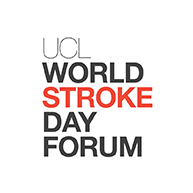
The everyday sharing of thoughts, opinions and feelings; talk
How we make friends, keep our relationships going and get what we want in life.
The Better Conversations initiative aims to:
- promote awareness of conversation and promote awareness of the impact of communication disabilities on conversations
- improve access to conversation therapy
- act as a meeting place for anyone who is interested in supporting better conversations. This includes people with communication disabilities and their family and friends, health and social care professionals and people learning about conversation.
Aphasia is a loss of language after a stroke, affecting reading, speaking, understanding and writing. One third of people who have a stroke will experience communication difficulties because of aphasia. It can make conversation and relationships very difficult. This is why it is vital that ‘The Art of Conversation with Aphasia (ACA)’ project, funded by a University College London (UCL) Innovation and Enterprise grant, is happening now. This is a creative wellbeing project embedded in an arts and culture setting using a therapy programme for aphasia developed at UCL, called Better Conversations with Aphasia. Working with De La Warr Pavilion, the charity Say Aphasia and artist Nikki Hafter, we will design and run a course to help people with aphasia and their friends and family members discuss and develop helpful strategies to navigate conversations whilst engaging (and hopefully enjoying) the art and culture that is on their doorstep at the De La Warr Pavilion.
In our workshops for World Stroke Day, our design team will share with you what we have learnt about working together to co-design the course during a pandemic. Speech and Language Therapist Firle and artist Nikki will share techniques they’ve explored to facilitate co-design between people with and without aphasia, and Say Aphasia founder Colin (who has aphasia himself) will share his experiences of co-designing the course. So if you’d like to find out more, try some creative ice-breakers and share any co-design tips you may have, please join us

